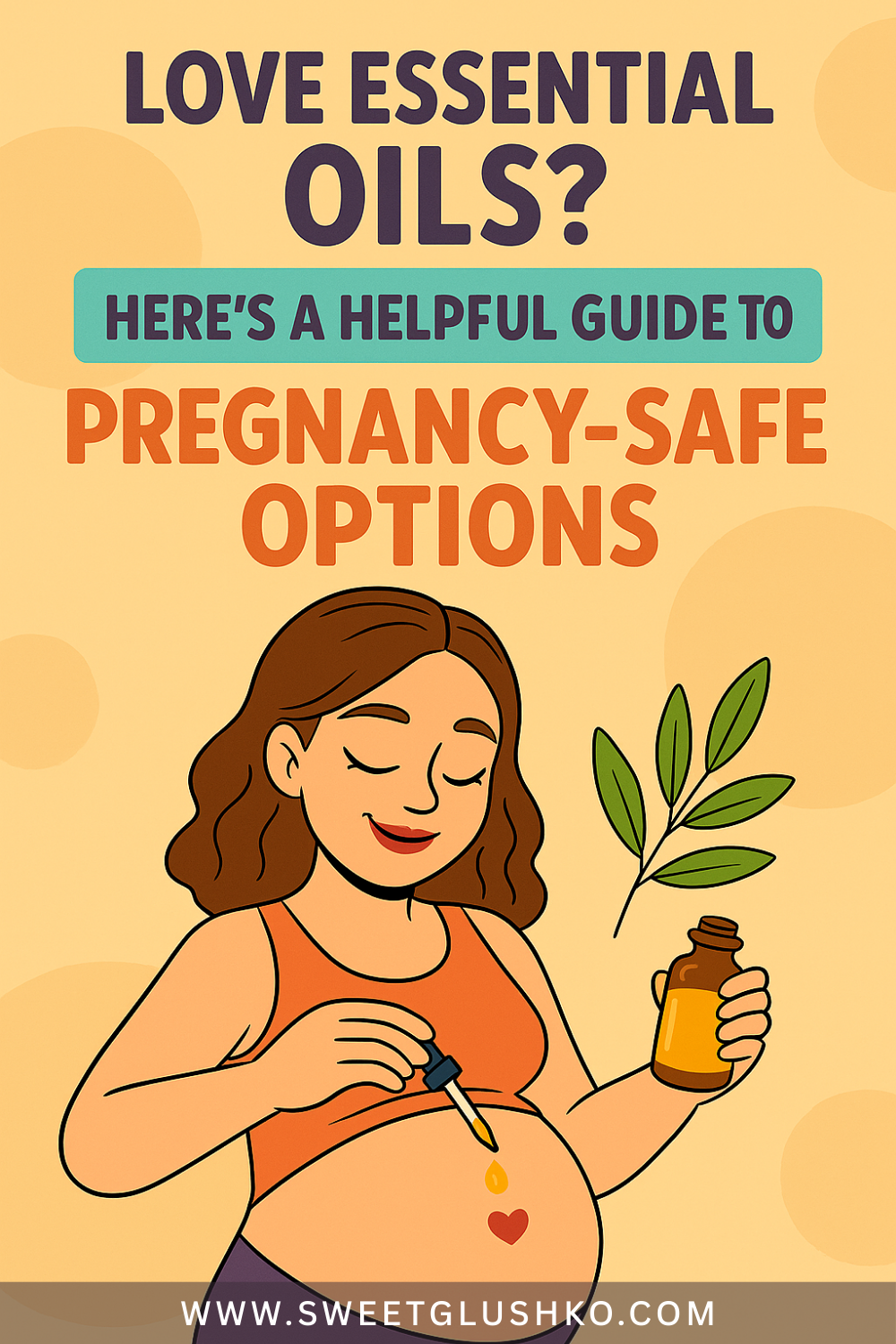Essential oils in pregnancy have become a popular choice for expectant mothers seeking natural ways to relax and manage symptoms. Extracted from various plant parts, these oils are often used topically for their calming effects. However, since not all oils are safe during pregnancy, many women spend a great deal of time researching the right ones for themselves and their babies. Fortunately, we’ve simplified the process by compiling a list of pregnancy-safe essential oils, along with their benefits and precautions. Keep reading to make informed, confident choices when selecting essential oils for comfort and care.

A Safe Guide to Using Essential Oils
If you’re considering using essential oils, it’s important to understand both their potential benefits and safety precautions. While essential oils can offer relief from common pregnancy discomforts, their improper use can pose risks. Here’s everything you need to know to use them wisely and safely.
Are Essential Oils Safe to Use During Pregnancy?
Essential oils are highly concentrated plant extracts that can cross the placental barrier. According to the International Federation of Professional Aromatherapists (IFPA), improper use—especially at high concentrations—can be harmful during pregnancy. Because safety studies on pregnant women are limited, always consult your healthcare provider or a certified aromatherapist before incorporating essential oils into your prenatal routine.
How Do Essential Oils Work During Pregnancy?
Essential oils can be used in two primary ways during pregnancy:
Aromatherapy
Inhaling essential oils through diffusers, steam, or sprays stimulates the brain’s limbic system, promoting relaxation, reducing stress, and improving mood. It’s a gentle, non-invasive method that many pregnant women find calming.
Topical Application
When diluted with a carrier oil or mixed into creams and lotions, essential oils can be massaged into the skin or added to bath water. Through this method, oils absorb into the skin’s surface layers, offering localized or full-body benefits—especially for skincare and relaxation.
Beneficial Oils in Pregnancy
Here are some essential oils often used during pregnancy, along with their potential benefits:
Lavender (Lavandula angustifolia)
- Promotes relaxation and restful sleep
- Eases nausea and mild anxiety
- May help reduce labor duration and postpartum discomfort
- Shows anti-itch and anti-inflammatory effects
Peppermint (Mentha piperita)
- Alleviates headaches and migraines
- Soothes swollen feet and nausea
- May reduce symptoms of IBS and digestive discomfort
Frankincense (Boswellia carterii)
- Offers calming properties during labor
- May help reduce pain intensity and anxiety
Geranium (Pelargonium graveolens)
- Eases anxiety in labor
- Can support varicose veins when combined with other oils like lemon and cypress
Rose (Rosa damascena)
- Helps reduce lower back pain
- May aid in easing labor and postpartum depression
Neroli (Citrus aurantium var. amara)
- Reduces labor-related stress and anxiety
- Offers emotional support in high-risk pregnancies
Ginger (Zingiber officinale)
- May relieve morning sickness when blended with lemon or peppermint
Lemon (Citrus limonum)
- Commonly used to ease nausea and vomiting during the first trimester
When to Avoid Essential Oils
It’s generally recommended to avoid essential oils in pregnancy during the first trimester and in high-risk situations. This is when the fetus is most vulnerable. Always consult your doctor before using any essential oil, especially early in pregnancy or if you have complications.
Essential Oil Safety Tips
To use essential oils safely during pregnancy, follow these key precautions:
- Dilute to 1% or less using a carrier oil like coconut or jojoba
- Limit bath use to 4 drops or fewer per session
- Do not ingest essential oils unless advised by a certified professional
- Buy only pure, therapeutic-grade oils from trusted sources
- Patch test before use to rule out skin sensitivity
- Avoid extended or excessive use
- Keep away from open flames as essential oils are flammable
- Follow label instructions and use only the recommended method of application
Using essential oils in pregnancy can be a soothing and supportive part of your self-care routine when done responsibly. Always prioritize safety, choose trusted oils, and get guidance from your healthcare provider. With the right approach, essential oils can offer gentle, natural relief throughout your pregnancy journey.